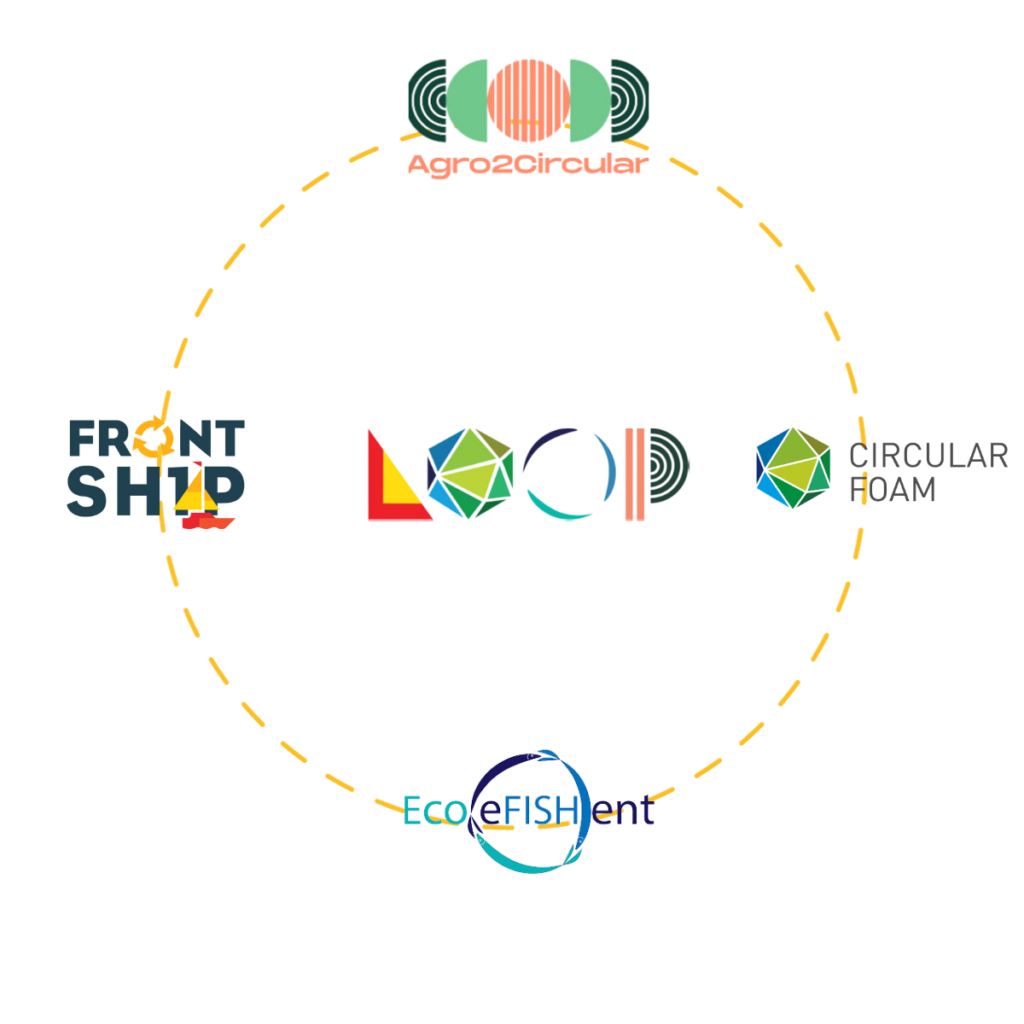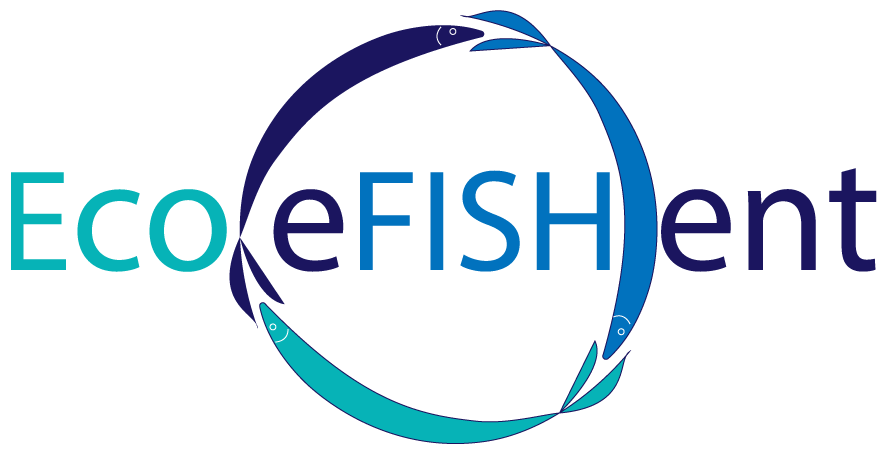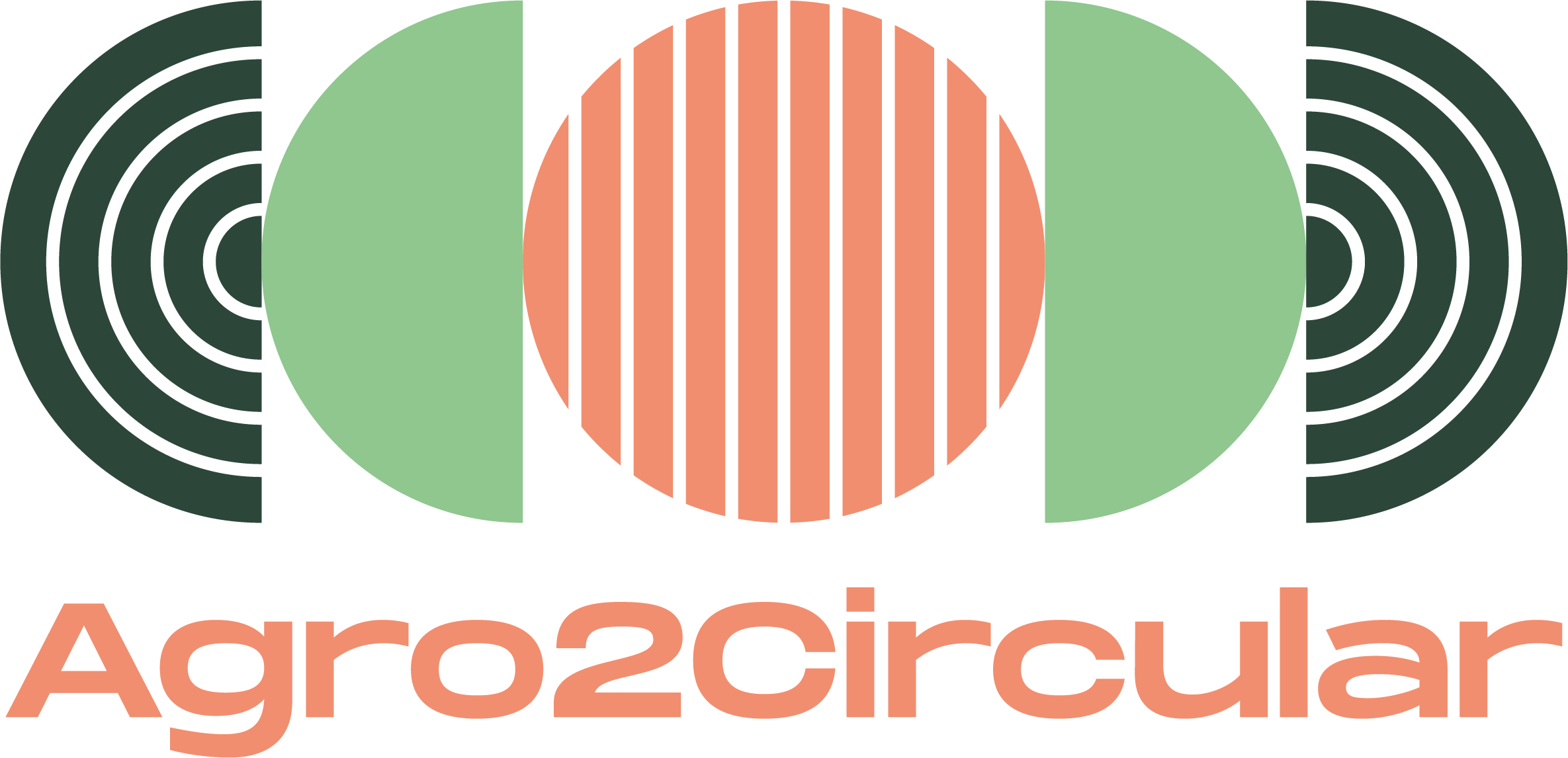The LOOP Cluster
Frontrunner Projects and Regions in the application of circular economy approaches
The European regions crucial actors and drivers for the implementation of circular ecosystems and value chains. As such, the LOOP cluster came to life as a joint, bottom-up initiative of the four sister projects Agro2Circular, CIRCULAR FOAM, EcoeFISHent, and FRONTSH1P, all funded under the same Horizon 2020 GD3.2 call to demonstrate systemic solutions for the territorial deployment of the circular economy in European regions and their further replication. As all four projects share the same goal a regular exchange and deep cooperation seemed and seems only natural.


FRONTSH1P
FRONTSH1P, centered in Poland’s Łódzkie region, aims to lead the way in transitioning from a linear to a circular economy. Over the next four years, it will develop and demonstrate Circular Systemic Solutions in key sectors like packaging, food, water, and plastics. These solutions will also be implemented in other European regions, fostering Circular Regional Clusters and involving diverse stakeholders. The project boasts a consortium of 35 partners from nine European countries, ensuring a well-balanced representation across the circular economy value chain and related fields.

EcoeFISHent
EcoeFISHent aims to establish a replicable, sustainable cluster for a climate-neutral circular economy. It involves six interconnected circular value chains (CVC) that bridge blue and green economies while harmonizing human activities with marine ecosystems and protected areas. The project’s objective is to efficiently utilize fish-processing by-products to produce bio-actives, galantine for premium supplements and skincare products, and biodegradable packaging materials. Additionally, other fishing industry by-products will be transformed into soil fertilizers, biodiesel, and chitin for cosmetics.

Agro2Circular
Agro2Circular is spearheading the adoption of a circular economy solution, aiming to upcycle agrifood residues and reduce waste. This initiative will transform waste into new cosmetic, nutraceutical, food formulations, and biodegradable packaging. The entire process will be transparent and traceable through an ICT platform. The project focuses on transitioning away from single-use items, emphasizing sustainable value chains and harnessing the untapped potential of agrifood residues. It will begin in Spain’s Murcia region and later expand to Italy and Lithuania, involving public engagement and circular business models to promote scalability and adaptation.

CIRCULAR FOAM
The “CIRCULAR FOAM” project aims to achieve plastic circularity, focusing on rigid PU foams used in refrigerators and construction. Its consortium includes various stakeholders needed for a closed circular value chain. The project’s systematic approach will be tested in three pilot regions, and the results will inform future replication across Europe. Waste streams will be chemically upcycled, creating virgin-equivalent feedstock for high-performance plastics, reducing waste, promoting sustainability, and advancing climate neutrality.
